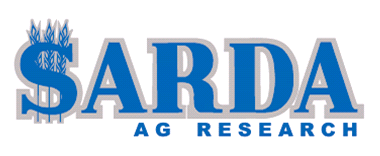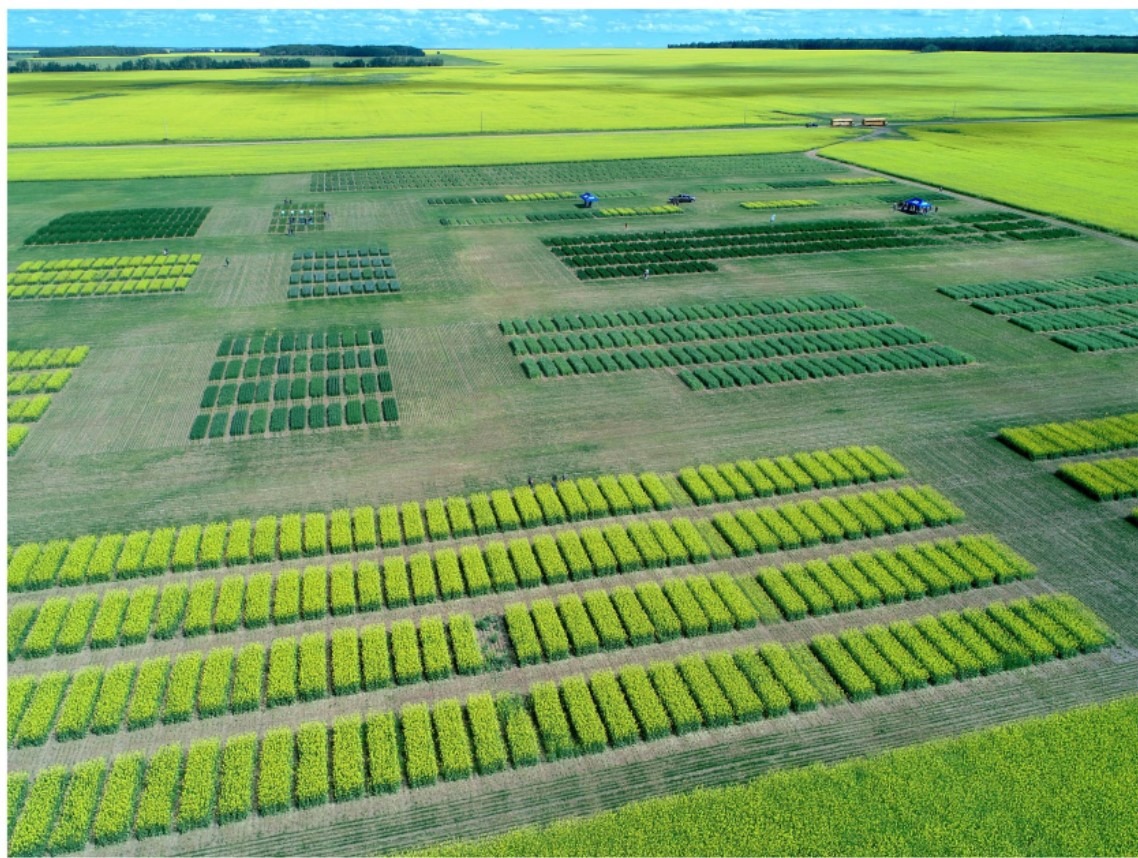It seems like yesterday that I was writing an article for 2017 year end. The 2018 year flew by. To make it easier, I will talk about the year in phases based on major activities.
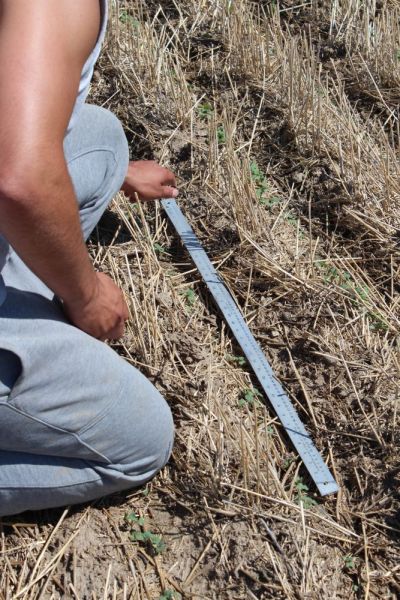

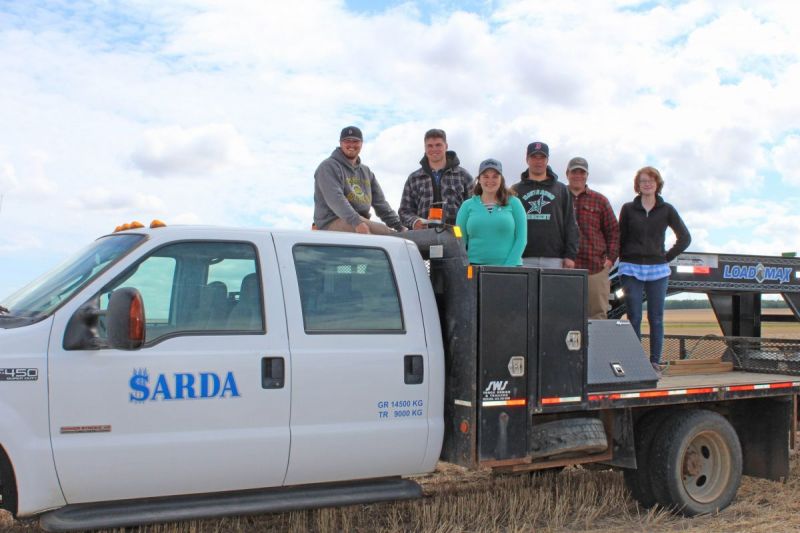
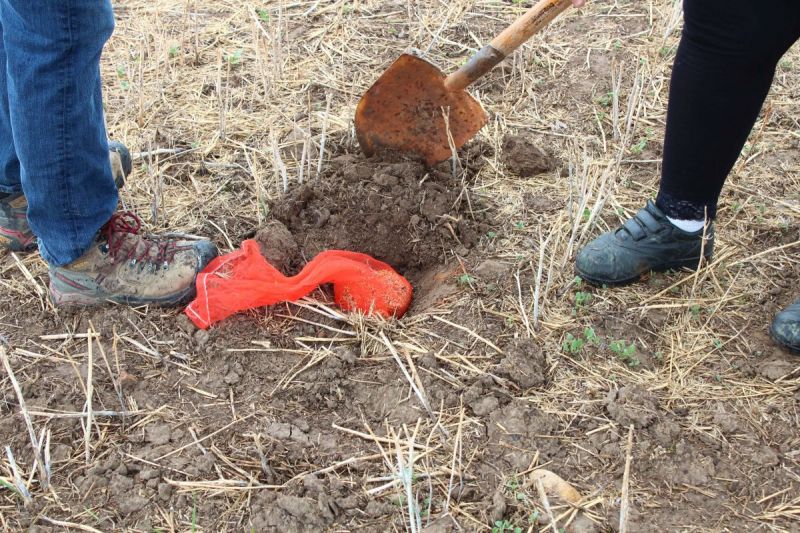
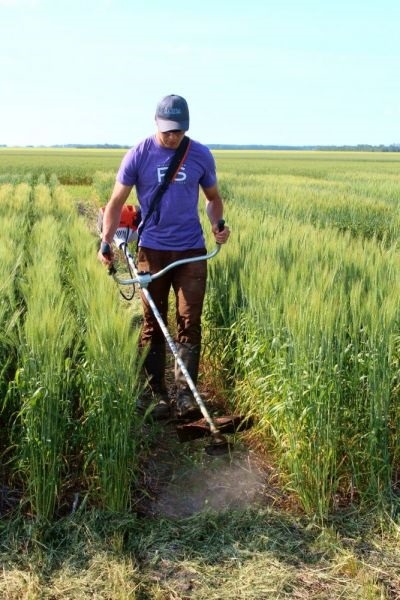
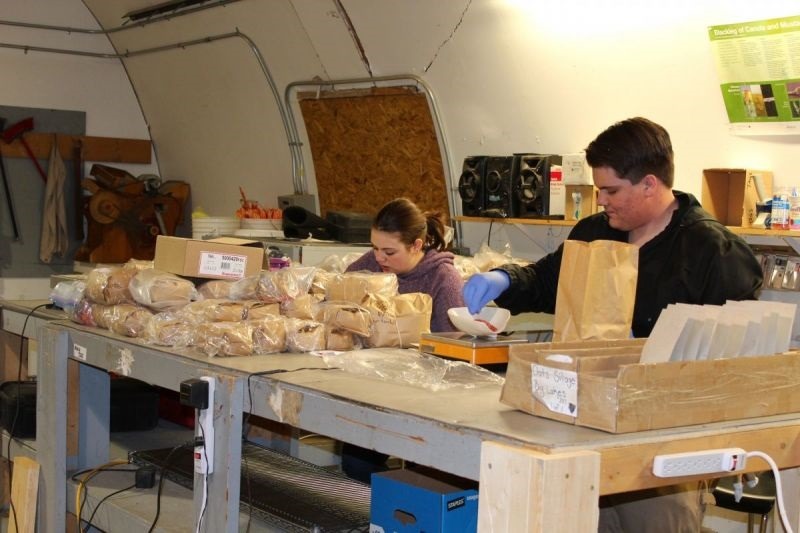
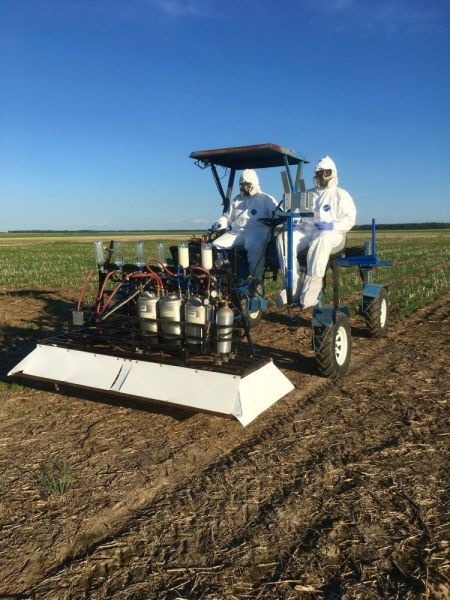
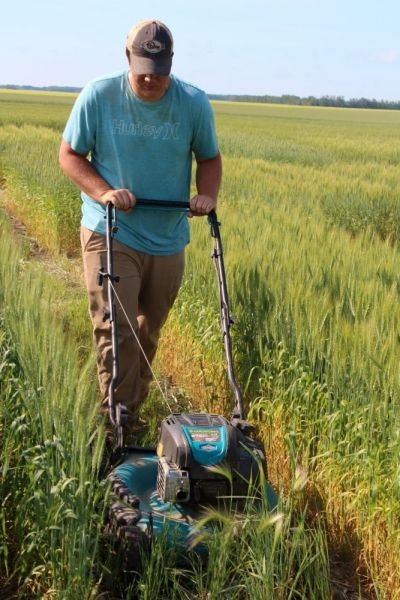
The first phase I will call obligations. During this phase, we establish the majority of the trials and projects we will work on for the next year, report to our membership, confirm the Board of Directors and plan the extension program. In 2018, we participated in 70 trials and monitored and surveyed for Bertha Army Worms, Diamond Back Moths, Wheat Midge, Pea Leaf Weevil, cutworms, wireworms, clubroot, and blackleg in canola. The trials included projects in the final year of their protocols, some just beginning, and some partway through their terms. We did trials that were SARDA specific, in partnership with Farming Smarter and Vegreville, and in partnership with other research associations in Alberta. Several industry trials were also completed. Results are reported online at www.sarda.ca, when the reports are completed. This is also the time of year that staff pursue individual training, network with other agricultural personnel and explore new research and agronomic practices.
In January, the association-appointed accountant prepared a complete financial audit, which was made available and approved at the required Annual General Meeting (AGM) held at the end of February. Once the Board of Directors was established for the year, the budget was set, equipment purchases planned, and direction given to the staff who are tasked with the execution of the association’s goals. This is also the time of year that staff completed numerous grant reports, wrote reports for our partners, wrote new project proposals, and negotiated with clients old and new for services and trials in 2018. SARDA said hello to Amber Fennell-Drouin, a welcome addition to the SARDA staff as an administrative assistant, and goodbye and thank you to Dr. Kabal Gill, who retired, and Dr. Khalil Ahmed, who moved on in August to work for another research association.
At the AGM, David Spiess, Doug Macaulay, Francois Catellier, and Darcy Boisvert presented on the improved soil information viewer, the Agriculture Opportunity Fund, the Northern Alberta Hemp Production Initiative, and SARDA’s Variety Trials, respectively, in addition to the required association business.
Extension goals were also established. It was reaffirmed that SARDA would hold the AGM and Extension Event, hold the annual Field School, and continue with the newsletters and MailChimp initiative. In 2018, SARDA distributed more than 20,000 newsletters, and sent out 60,000 e-mails on subjects of interest to agricultural producers and their industry representatives. In addition to the emails and newsletters, SARDA staff maintained their newly designed website, and was rewarded with in excess of 20,000 hits.
The Field School and grand opening of SARDA’s new storage building was a highlight in 2018 for SARDA staff and producers. The event hosted 77 participants who enjoyed tours of the trial sites with guest researchers, a BBQ steak supper, and entertainment. We were fortunate that the weather cooperated. Other events SARDA co-hosted, participated in and/or supported included the Footprints tours, the 2018 Clubroot Meeting Road Show (7 events throughout the Peace Region), EFP Workshops, Shelterbelt Workshops, Buttercup and Burdock Workshops, Soil Health workshops, the Classroom Agriculture Program, a Weed Control Workshop, Crop Seedling and Weed ID Sessions for municipal Weed Inspectors in the Peace Region, SARDA Variety Trial Crop Walks, Producer Commission Events, and numerous program updates for SARDA partners.
The second phase of the year I will call Trial Establishment. During this period of time, SARDA’s focus is on establishing the committed projects according to trial protocols. The summer students, under the direction of Darcy Boisvert and Khalil Ahmed, joined the crew and were responsible for preparing the seed and fertilizer packages, calibrating the seeders, site preparations and seeding the trials. All activities were documented and plot labels prepared. Plots are measured and the sites were mowed to ensure all plots are equivalent size, treatments were labeled and signs were installed. Data collection began with plant counts, plant counts, and more plant counts. During the season, in-plot applications of herbicide, nutrients, fungicides, plant growth regulators, and insecticides were also completed as indicated in trial protocols. SARDA’s students did a great job in 2018. A big shout out to Suzanne Boulet, Joseph Sylvain, Dave Cloutier, Robyn Simoneau, Josh Sylvain, and Tyler Yoder, our student staff in 2018.
Each year brings new and interesting trials to SARDA’s workload. In 2018, in response to producer’s requests for information on protein levels in the new wheat varieties in SARDA’s local variety trials, SARDA staff were able to source funds to purchase a protein tester and designed a trial to look at different ways to possibly increase protein levels with applications of nitrogen in different forms and at different levels of growth throughout the season. This trial was established at 2 locations in the Peace Region and will be continued in 2019 and 2020. In addition to the protein levels, SARDA will also be monitoring the economic implications of the different treatments. Look for test results at www.sarda.ca, which will posted as soon as they are available.
Another interesting trial this year is the deep banding of immobile nutrients project. Because producers may be limited by equipment capacities in the amount of nutrients they are able to apply at seeding time, SARDA, Vegreville, and Farming Smarter designed a trial that looked at the deep-banding of the immobile nutrients at 3 times the recommended rate once every three years versus yearly applications at the recommended rate. The other nutrients, Nitrogen and Sulphur, were applied at the yearly recommended rate and will be applied yearly based on recommendations of annual soil tests. The immobile nutrients include phosphorus, potassium, and copper.
The hail simulation trial’s field portion was completed in 2018. The next step will be to analyze the results, evaluate the economics of the different trials, and determine if any trends or conclusions can be drawn. This project was replicated in Lethbridge and Vegreville, for three years. All the data from the three locations will be analyzed. The report will be posted on the website as soon as it is available.
SARDA works with many new crops for the area, evaluating their ability to be assimilated into local production, testing agronomic methods, evaluating the economics of producing these crops locally, and determining how they could be added into a typical crop rotation of the area. In 2018, SARDA participated in numerous trials of unusual crops including faba bean, soybean, industrial hemp, forages for feed and seed, and quinoa. We looked at fertility, fungicide treatments, fertility application timings, crop rotations, varieties, and disease management. Industry trials often test new treatments and products and although we are unable to disclose all the results, there are always things to learn from these.
The third phase of the year I will call project completion. This phase begins with the disappearance of the summer staff who return to school and SARDA’s full-time staff takes full responsibility for the activities required. The plots are harvested, samples dried and processed. Some projects require the samples to be sent on for further testing, so these are packaged and sent out. All harvest data is recorded, analyzed and forwarded to the heads of the trials if we are partnering with others on the trial. Protocols are scrutinized to ensure all contracted services are completed and invoices are prepared and distributed. Reports are prepared and posted as they are completed. Equipment is maintained, repaired and evaluated as to whether it will complete its expected life for the replacement plan. It is also during this time that staff plan to attend training events to enhance their own knowledge and organize producer events. Meanwhile, initial program planning and budget preparation for 2019 begins. The project completion phase often moves seamlessly into the obligations phase with no definitive break.
In addition, planning for the biannual Trade Show began late in 2018. Plan on attending the show which will be held on March 14, 15 and 16, 2019. In addition to the 200 booths of the Trade Show, SARDA is also planning an exhibitor appreciation night, a farmer appreciation event and the farm safety pavilion. This is a huge endeavor for the small SARDA crew, but planning is well underway and we are on course to meet the deadlines we have set for Registrations and advertising.
SARDA is a non-profit organization that is producer directed and operates in the south Peace Region of Alberta including the Municipalities of Greenview and Smoky River, Big Lakes County, Northern Sunrise County and the County of Grande Prairie. Our mission is to facilitate the transfer of unbiased ideas and information between research institutions, industry and agricultural producers. We challenge anyone who is interested in agriculture to subscribe to the email notification program through www.sarda.ca . On this website you will also find, important program information, quick links to reports and information on challenges facing agriculture, articles on SARDA activities, and coming events as well as the numerous ways you can contact us. SARDA staff loves to talk to people about agriculture and the work we do. Merry Christmas everyone!
By Shelleen Gerbig, P.Ag.
